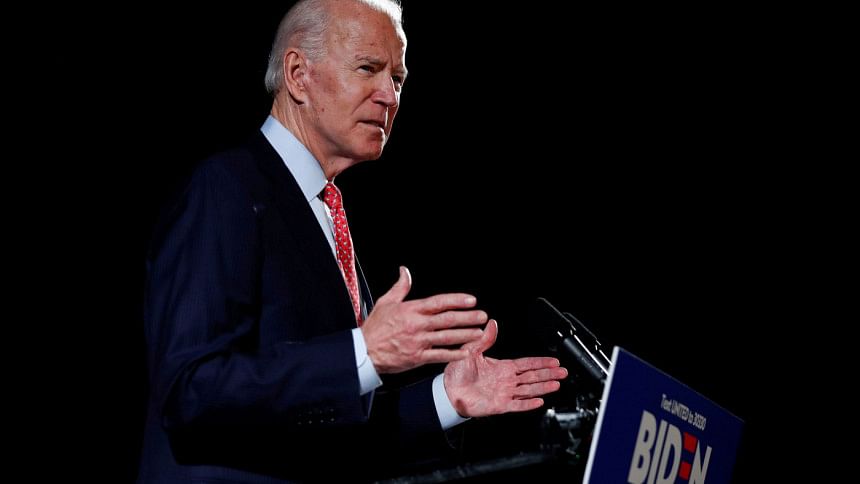Biden’s Internal Challenges

The tumul-tuous departure of Donald Trump from office has left an awful lot of wrecks in its wake, both internally and externally. The former president of the United States has the dubious distinction of facing the double disgrace of being impeached twice, the latest one for inciting an insurrection. The second impeachment will not be without its social, racial and political fallouts.
Right after the November 3, 2020 presidential election, we had asked in these very columns whether Joe Biden would be able to regain America's soul once he gets to govern the country. One of the consequences of four years of Trump has been the reduction in the threshold level of credulity of Trump voters as well as degradation of democracy in the US. The first moment of his presidency started with lies, euphemistically called alternative facts, and his last moment as president also concluded with lies. As per a Washington Post article carried on January 24, 2021, Trump made 30,573 false or misleading claims as president. Nearly half came in his final year. Most of the lies, sadly, are believed to be true by his hard-core followers.
Scholars opine that for America under Biden to reclaim its position globally, its democracy must work at home first. The underlying message of it is that Trump's authoritarian inclinations—transgressing the well-defined line of separation among the three branches of the state, influencing various agencies and departments for his personal gains, kowtowing to autocrats, and disregarding the rule of law at home—had given a green signal to many world leaders who were disposed to such inclinations as well as pseudo-democracies where autocratic rulers with a veneer of democracy as a garb rule with iron fists by dispensing with the rule of law and human rights.
Dr Leslie Vinjamuri encapsulates these thoughts very well in a Chatham House paper, where she writes, "In the years ahead, the global balance of democratic and authoritarian values will be shaped not only by US leadership abroad but especially by the ability of the Biden administration to fix America's democracy." This assumes even greater significance given that there has been a backsliding in democracy index generally across the globe over the last several years.
There has perhaps never been a time in US history—except for the period of its Civil War—when the American republic was under a greater threat than it was during the deadly insurrection into the Capitol on January 6, 2021. That democracy endured eventually speaks highly of the state of US democracy and its institutions that helped it survive. The lesson for us, our polity in particular, and for those who are entrusted with the onerous task even if some of them are not up to the position they have been thrust in—of not only running but also retaining their integrity—is the importance of the well-defined line of separation and independence for the three branches of the government, which should be upheld despite one's political leanings, inclinations and preferences. Democratic institutions and those who head them accord strength to a country's democracy.
Apart from deepening the extant large cleavages in American society, Trump has left behind an America that will be difficult for Biden to govern. Some 75 million Americans voted for the former president who lost by seven million votes, and a majority of them still believe that victory was stolen from their candidate despite no evidence to support that claim. A great majority of their representatives in the Congress voted to oppose Biden's victory. And a vast majority of Republican members of Congress do not believe that Trump bears any responsibility for the storming of the Capitol.
How does Biden bridge the rift of such a highly polarised society? How does he get these people on board to turn them into a coherent entity when a vast number of them consider him a usurper? Repairing the social damage should be on top of Biden's list of "things to do". How that can be done is to be seen. Internally, it means rebuilding the nation by addressing the impediments that keep the rift widening—which Biden mentioned during his inauguration speech—such as systemic racism and white supremacy, racial inequality, economic disparities, etc. He also needs to repair the criminal justice system and the institutions ruined by Trump. A daunting task for the Biden administration is to deradicalise those pushed to extreme actions by Trump which we saw manifest in the attack on the Capitol. These tasks along with that of tackling Covid-19—for nothing substantive can be achieved unless the pandemic is defeated—remain the most formidable internal challenges for Joe Biden.
Internationally, while it will not be "America first" of Donald Trump under President Joe Biden, will there be much difference between the policy pursued by Trump in general and the policy of the new administration? Admittedly, the new US administration will discard the unilateral nationalism of Trump and move quickly to reassert its weight to fill the void left by Trump's willing abdication of its role in international diplomacy and politics, but experts see very little hope for a substantive change in US foreign policy, except for a change in nuances in its approach compared to the Trump administration's knee-jerk reactions to strategic developments abroad. More on the foreign policy challenges of Biden next week.
Brig Gen Shahedul Anam Khan, ndc, psc (Retd), is a former Associate Editor of The Daily Star.

 For all latest news, follow The Daily Star's Google News channel.
For all latest news, follow The Daily Star's Google News channel. 



Comments